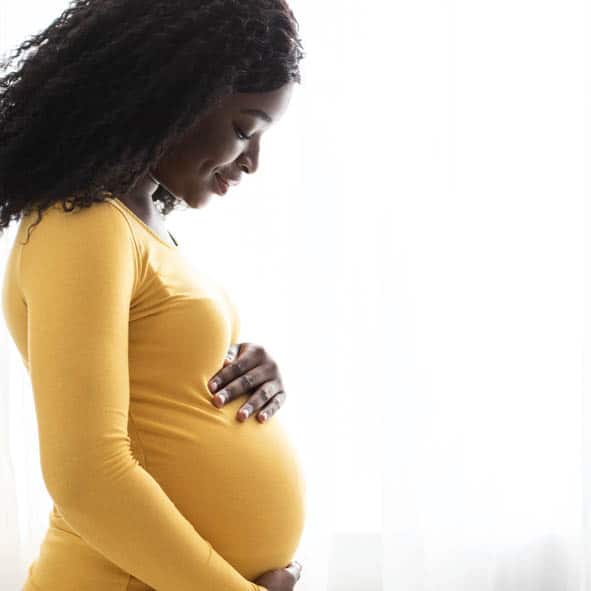July is Group B Strep (GBS) awareness month. Most women carrying GBS will have no symptoms. Carrying GBS is not harmful to you, but there is a small chance it can affect your baby around the time of birth. GBS can cause serious infection in young babies and, very rarely, in babies before they are born.
GBS is not routinely screened for on the NHS so it’s important to be informed.

What is Group B Streptococcus (GBS)?
Group B Streptococcus (GBS) is a type of bacteria that can naturally exist in the digestive and lower reproductive tracts of both men and women without causing harm. However, for pregnant women, GBS can pose a risk to the baby during childbirth. According to Group B Strep Support 2 to 4 of everyone ten women in the UK carries the bacteria.
How does GBS affect pregnancy and newborns?
GBS carriage is not a sign of ill health or poor hygiene and it typically doesn’t cause problems in healthy adults however it can be passed to the baby during delivery. Most babies who are exposed to GBS during birth do not develop an infection. However, some babies can become seriously ill due to GBS infection, which can lead to conditions like pneumonia, sepsis, or meningitis.
What can you do to protect your baby?
Most women carrying GBS have no symptoms, so GBS is often found by chance through a vaginal or rectal swab test or a urine test.
The NHS does not routinely test all pregnant women for group B Strep.
A test designed specifically to identify whether you carry GBS, known as the Enriched Culture Medium (ECM) test, is becoming more available within the NHS and is widely available privately however according to GBSS many maternity units still use a standard test that misses up to half of the women carrying GBS.
It’s best to ask your health care professional what is available to you locally.
You can also order a private test here.
What are the chances of my baby getting GBS?
Many babies come into contact with group B Strep during labour or around birth, and the vast majority will not become ill.In the UK, about 1 in 1,600 of all babies born develops a GBS infection.
If the GBS infection is not treated, babies can become seriously ill. But with prompt treatment, most babies will make a full recovery. This makes early detection vital.
Although group B Strep infection can make your baby very unwell it’s important to remember that with prompt treatment, most babies will make a full recovery.
Group B Strep infections are most common in newborn babies during their first few days after birth. However, babies can still develop group B Strep infections up to three months of age, and in very rare cases, beyond three months.
Some GBS Statistics
These stats are from www.gbss.org.uk
On average, in the UK and the Republic of Ireland, every month:
- Around 70,000 live babies are born
- 66 babies are diagnosed with a group B Strep infection
- of these, 56 babies make a full recovery
- 4 babies die from their group B Strep infection
- 6 babies survive with long-term physical or mental disabilities
How can I reduce the risk to my baby?
Most early-onset group B Strep infections can be prevented with intravenous antibiotics. These will be given during labour if your baby has a higher chance of developing an early-onset GBS infection.
If you opt to have the antibiotics during labour, the risk of your baby developing an early-onset GBS infection drops significantly to around 1 in 4,000.
Talk to your health care provider about your options and visit GBSS for more information.
